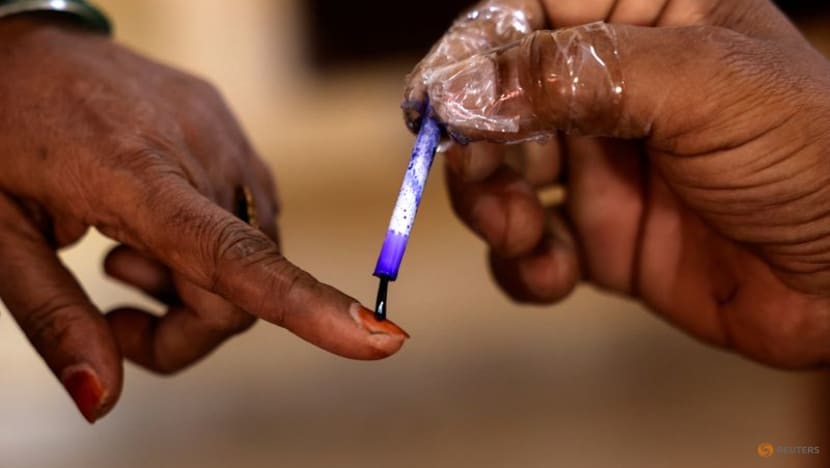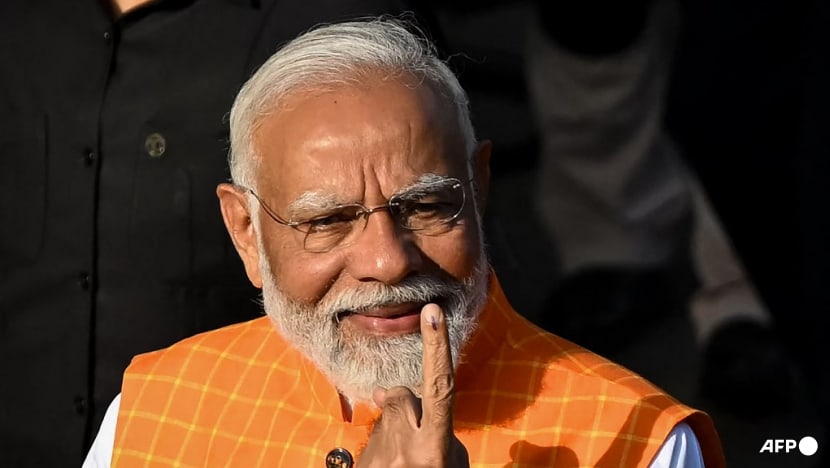Controversy erupts over India’s electoral bonds, opposition calls it ‘world’s biggest scam’
Data that was recently made public showed the Bharatiya Janata Party (BJP) received the biggest proportion of donations from electoral bonds, sparking a backlash from opposition parties.


This audio is generated by an AI tool.
NEW DELHI: As voting chugs along two-thirds of the way into the world’s biggest election, voters watching India’s polling action have also been gripped by a controversy that has erupted over political funding.
Seven years ago, Indian Prime Minister Narendra Modi’s governing Bharatiya Janata Party (BJP) introduced a scheme allowing the public to purchase electoral bonds and donate them to political parties. Donors could do so anonymously and without limits.
But earlier this year, India’s Supreme Court declared the practice unconstitutional and ordered the names of individuals and companies who had bought these bonds to be made public.
According to information that has since been released to the public, the BJP received the biggest proportion of the donations from these bonds.
This has sparked a backlash from the opposition, which described the scheme as the “world’s biggest corruption scam”.
BONDS GAVE BJP AN UPPER HAND: OPPOSITION
The main opposition party – Indian National Congress, which came in third on the list of beneficiaries – said the scheme has given the BJP a huge advantage in the election.
Its view is shared by other parties that are opposed to the BJP, including the Communist Party of India (Marxist), or CPIM – one of the smaller parties in parliament.
“There have been huge amounts of money being transferred, and (bonds) is only one avenue,” said CPIM leader Sitaram Yechury.
“There are also the electoral funds, the PM Cares fund, etc. A huge amount of money has been accumulated with the ruling party that destroys the level playing field in a democracy.”
PM Cares was set up by Mr Modi in 2020 to fight the COVID-19 pandemic. It is now mired in controversy over what critics say is a lack of transparency.

CPIM has been one of the biggest critics of electoral bonds since its inception and has publicly stated that the party would not accept any donations through the scheme.
It is also one of the petitioners in the case that challenged the legality of electoral bonds in the Supreme Court.
Even though the scheme has now been scrapped, critics say the BJP has already reaped the benefits, as political parties have encashed most of the funds donated.
NO UNDUE ADVANTAGE IN POLLS: BJP
However, the BJP said that despite getting a lion’s share of the funds, it does not give the party an undue advantage in the current election.
“BJP is the party that has the largest number of members of parliament in the Lok Sabha (House of the People). But the amount received by the BJP is less than 40 per cent,” said one of the party’s leaders Nalin Kohli.
“In ratio or in proportion to our MPs, it is a miniscule amount compared to political parties that have a far smaller political presence but have received proportionally far greater amounts.”
Observers said that the BJP securing more donations is not unexpected, given that ruling parties usually have leverage.
“I'm not surprised that (BJP) got the majority of the share. In fact, I'm surprised they didn't corner 90 per cent of funds. Ruling parties anywhere have an advantage,” said SY Quraishi, a former election commissioner of India.
CONCERNS OVER WHAT DONORS GET IN RETURN
Mr Modi’s party benefiting disproportionately from poll donations is not the only thing that has critics worried.
In a national election, these revelations have deepened fears of a setup between companies and political parties.
According to investigations, at least 30 corporate donors donated to political parties after federal agencies launched tax and money laundering investigations against them.
Another report found that 33 corporations donated bonds worth more than their profits, with three-quarters of those donations going to the BJP.
The revelation is causing many to question what corporations have received in exchange.
“The guys who donate are not saints. There is no free lunch. They donate because they have vested interests … they expect something in return,” said Mr Quraishi.
One Indian media network alleged that companies donating large amounts to the BJP were awarded major government contracts.
“It is a means to extort money from companies. It is a means to give contracts to companies in exchange for money. It is possibly the world’s biggest corruption scam,” said Congress leader Rahul Gandhi.
In a recent interview, Mr Modi defended the electoral bonds, maintaining that the scheme was a good way to crack down on so-called “black money”, referring to funds obtained through illegal means.
So far, nothing has been implemented to replace electoral bonds as a source of political funding.
According to estimates from the Centre for Media Studies in New Delhi, which monitors political spending, parties will spend a total of US$14.4 billion to woo voters in this election.
Political observers said that money received through the electoral bonds scheme has largely funded that expenditure, in order to win what is shaping up to be India's most expensive polls ever.














